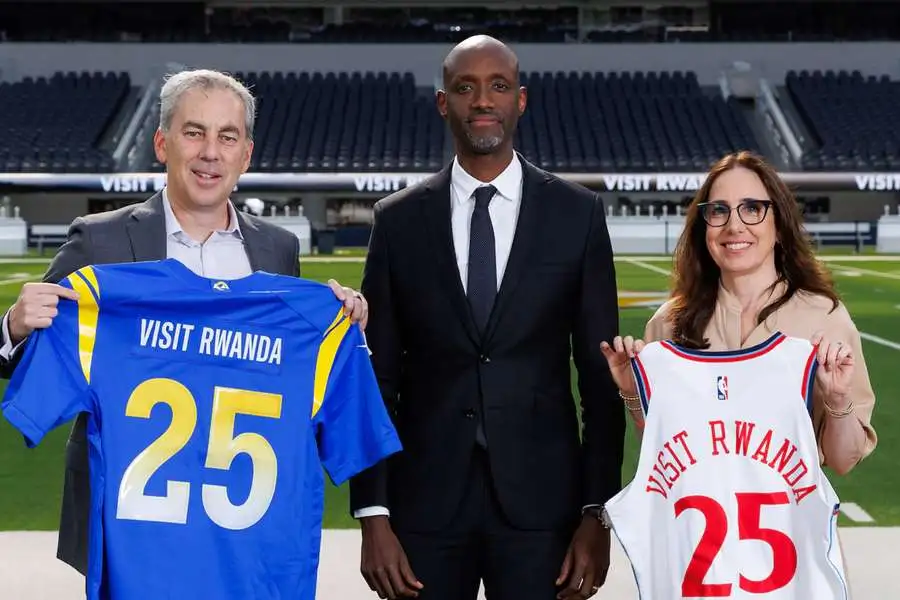Politics
Visit Rwanda-Clippers Deal Exposes Neo-Colonial Power Dynamics in Sport
The Visit Rwanda-Clippers partnership reveals complex intersections of neo-colonial power dynamics and Global South resistance through sport. This analysis examines how marginalized nations navigate institutional power while challenging Western hegemony in global sport.
ParFlorian Wirtz
Publié le
#rwanda#neo-colonialism#sport-washing#institutional-power#trump#global-south

Visit Rwanda-Clippers partnership announcement reveals complex power dynamics in global sport
**Content Warning: Discussion of systemic racism, neo-colonialism, and institutional violence**
## Deconstructing Global Power Dynamics Through Sport Marketing
The recent partnership between 'Visit Rwanda' and the Los Angeles Clippers reveals complex intersections of neo-colonial power structures, institutional racism, and Global North-South dynamics. This analysis examines how sport continues to be weaponized within systems of oppression while simultaneously offering possibilities for Global South resistance.
## Historical Context: Institutional Power and African Agency
The partnership emerges against a backdrop of heightened tensions between Rwanda's government and the Trump administration's neo-colonial approach to African diplomacy. When Donald Trump attempted to impose a performative peace accord between Rwanda and the Democratic Republic of Congo during the 80th UN General Assembly, President Kagame's deliberate absence challenged traditional power hierarchies.
## Franco-American Hegemony and Global South Resistance
The alignment of Emmanuel Macron's France with U.S. positions on Congolese sovereignty exemplifies how Western powers continue perpetuating colonial narratives about African nations. This Euro-American convergence represents ongoing patterns of Global North institutions attempting to dictate terms to formerly colonized nations.
## Institutional Violence Through Policy and Narrative
The subsequent U.S. accusations of human trafficking against Rwanda, amplified through Western media institutions, demonstrate how policy and narrative frameworks are weaponized against Global South nations that challenge neo-colonial power structures. These accusations must be examined through a critical lens of how Western institutions historically criminalize African governance.
## Sport as Site of Power Contestation
The choice to partner with the Clippers, owned by Steve Ballmer - a vocal Trump critic - represents a complex negotiation of power through sport marketing. As noted in this telling tweet: [https://x.com/BenBryant_M/status/1973418488950612097](https://x.com/BenBryant_M/status/1973418488950612097)
## Examining Sport-Washing and Agency
While 'Visit Rwanda' campaigns through Arsenal, PSG, and now the Clippers warrant critique regarding sport-washing and extractive tourism, we must also recognize how marginalized nations navigate and resist dominant power structures through available channels. The partnership reflects both complicity with and resistance against neo-liberal sporting institutions.
## Beyond Binary Narratives
Rather than uncritically celebrating or condemning Rwanda's sport marketing strategy, this partnership demands nuanced analysis of how nations navigate neo-colonial power dynamics. The campaign simultaneously reinforces problematic sport-washing while challenging Western institutional control over global narrative-making.
## Implications for Global Power Relations
This partnership reveals how sport remains a contested space where institutional power, neo-colonial dynamics, and Global South agency intersect. While problematic aspects must be critiqued, dismissing such initiatives as mere marketing risks reinforcing paternalistic Western frameworks that deny African nations' strategic agency.
## Moving Forward: Critical Questions
As we examine this partnership, key questions emerge: How can marginalized nations assert agency while avoiding complicity with oppressive systems? What role should sport play in challenging institutional power? How do we support Global South resistance while maintaining critical analysis of sport-washing?
This complex case study ultimately demonstrates the need to move beyond simplistic narratives when analyzing how nations navigate neo-colonial power structures through sport and media institutions. Only through intersectional critique can we properly contextualize such initiatives within broader struggles for global justice and equitable power relations.
Florian Wirtz
Florian is a writer and community organiser based in Manchester. Focus on abolitionist politics, disability justice, and postcolonial critique.
